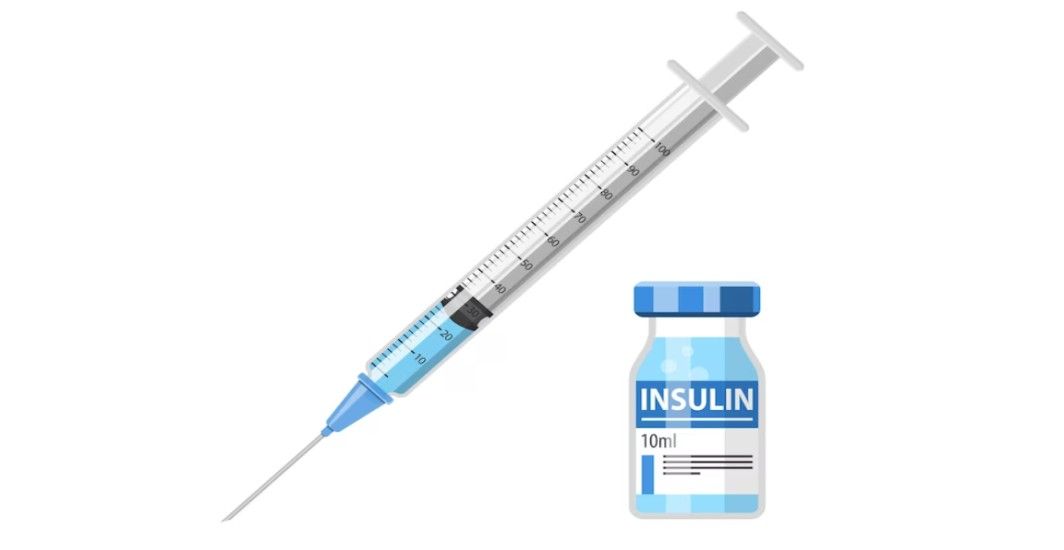Diabetes Management
Practical Tips for Managing Diabetes and Gluten Intolerance
2 min read
By Apollo 24|7, Published on - 10 September 2024
Share this article
0
0 like
.jpg?tr=q-80)
Living with diabetes when one is also gluten intolerant does present its own set of challenges. However, by embracing a few effective habits and changes in your diet, you can efficiently manage both conditions. Let's delve into some valuable tips that could help you manage diabetes with gluten intolerance and simplify your journey towards holistic wellness.
Understanding Your Dietary Needs
The first step in managing diabetes alongside gluten intolerance is to cut out gluten from your diet completely. This means avoiding food items that contain wheat, barley, rye, and triticale, which are known to trigger an adverse reaction in those with gluten intolerance or celiac disease.
Discovering Naturally Gluten-Free Delights
Luckily, we are blessed with abundant gluten-free food options. You can opt for fruits, vegetables, beans, lentils, nuts, seeds, eggs, meat, poultry, and seafood. Dairy products like milk, cheese, and yogurt or gluten-free grains such as rice, quinoa, and corn are all excellent choices.
Gluten-rich foods include wheat-based products like bread, pasta, and baked goods, as well as barley-containing items such as beer and malted products. Rye is also a source of gluten, found in foods like rye bread and crackers. Many processed foods, sauces, and soups may contain hidden gluten. It's important to read labels carefully if avoiding gluten due to sensitivity or celiac disease.
Reading Labels Carefully
Gluten can be an elusive ingredient and often hides in the most unexpected places. Therefore, it's crucial to meticulously read ingredient lists on food packages and specifically look for the "gluten-free" labels.
Being Conscious of Carbs and Portions
It's important to remember that many gluten-free foods are still high in carbohydrates and calories. To manage your blood sugar levels effectively as a diabetic person, you need to control your intake of carbs and maintain healthy portion sizes.
Collaborating With Your Doctors
Your doctor or dietitian can play a crucial role in helping you manage both diabetes and gluten intolerance efficiently. They can help you design balanced meal plans for your specific requirements and adjust your medications as needed.
Persisting Through The Change
Adapting to a new dietary regimen can be challenging. However, with patience and perseverance, it can become second nature. Don't hesitate to seek support from your doctors or loved ones.
With the help of these tips, you can successfully manage both diabetes and gluten intolerance. By staying focused on your health goals and undertaking the Apollo Super 6 programme, you can maintain a healthy lifestyle and take control of both of these conditions.
Diabetes Management
Consult Top Diabetologists
View AllLeave Comment
Recommended for you

Diabetes Management
Diabetes & Sleep Cycle: Is there a Connection?
Diabetes disrupts sleep due to blood sugar fluctuations, affecting millions globally. It can cause insomnia, night sweats, and nightmares due to high and low sugar levels. Diabetes also raises sleep apnea risk. Neuropathy, common in diabetes, adds leg and foot discomfort. Proactive management improves sleep quality and well-being.

Diabetes Management
Carrots for Diabetes: Is it a Healthy Choice?
Carrots, with a low GI, are beneficial for diabetes. Boiled: GI 33, Raw: GI 16. Rich in beta-carotene for vision and immune health. Fibre promotes stable blood sugar, so moderation is key. Enjoy raw or lightly cooked for versatility and nutrients, supporting diabetes management and overall well-being.

Diabetes Management
Ultra-Rapid-Acting Insulin: A Quick Guide
Ultra-rapid-acting insulin allows individuals with diabetes to quickly and effectively control blood sugar spikes after meals. Understanding how it works and using it appropriately can help you manage your diabetes better. Remember to couple it with regular exercise, a healthy diet, and diligent use of a diabetes management application for optimal results.
Subscribe
Sign up for our free Health Library Daily Newsletter
Get doctor-approved health tips, news, and more.
Visual Stories

8 Fruits That are Incredibly Healthy for Diabetes
Tap to continue exploring
Recommended for you

Diabetes Management
Diabetes & Sleep Cycle: Is there a Connection?
Diabetes disrupts sleep due to blood sugar fluctuations, affecting millions globally. It can cause insomnia, night sweats, and nightmares due to high and low sugar levels. Diabetes also raises sleep apnea risk. Neuropathy, common in diabetes, adds leg and foot discomfort. Proactive management improves sleep quality and well-being.

Diabetes Management
Carrots for Diabetes: Is it a Healthy Choice?
Carrots, with a low GI, are beneficial for diabetes. Boiled: GI 33, Raw: GI 16. Rich in beta-carotene for vision and immune health. Fibre promotes stable blood sugar, so moderation is key. Enjoy raw or lightly cooked for versatility and nutrients, supporting diabetes management and overall well-being.

Diabetes Management
Ultra-Rapid-Acting Insulin: A Quick Guide
Ultra-rapid-acting insulin allows individuals with diabetes to quickly and effectively control blood sugar spikes after meals. Understanding how it works and using it appropriately can help you manage your diabetes better. Remember to couple it with regular exercise, a healthy diet, and diligent use of a diabetes management application for optimal results.


